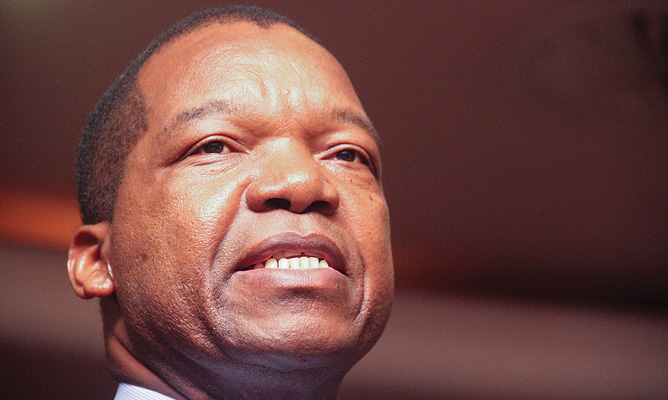
RESERVE Bank of Zimbabwe (RBZ) governor John Mangudya might be a well-meaning man, hoping the bond notes could be the panacea’s to the country’s economic woes, but in reality, he may have just have opened a Pandora’s box.
NewsDay Comment

The question before Mangudya is not whether the forthcoming bond notes are bad, but rather the memories they evoke and the flashback to the Zimbabwe dollar days.
What the central bank chief may have underestimated is the psychological scars that Zimbabweans still bear following similar experiments such as bearers’ cheques and special agro cheques, which ended badly for most.
Mangudya may, and with good reason, argue that the bond notes are different from their predecessors — bearers’ cheques — but the sad reality is that perception will take centre stage and that will undermine the value of the new notes he intends to introduce.
In the face of strong resistance, Mangudya may choose to be headstrong and continue with the introduction of the bond notes, but the reality is that they will soon crash for what good is a currency or money with no public confidence?
In light of the resistance, Mangudya yesterday said the economy needed to be driven by faith, but while the religious may accept this, the truth is that the economy is run on fundamentals rather than a belief in things unseen.
Probably without anticipating the resistance, Mangudya and his team dreamt up what they thought was a solution to the cash crisis and hoped it would succeed, yet they were not prepared enough for the policy.
- Chamisa under fire over US$120K donation
- Mavhunga puts DeMbare into Chibuku quarterfinals
- Pension funds bet on Cabora Bassa oilfields
- Councils defy govt fire tender directive
Keep Reading
The lack of preparation is evidenced by that the RBZ has twice had to make changes to the policy it announced barely a week ago.
With this kind of leadership, Zimbabwe will continue lurching from one crisis to another, while the economy continues to plummet to new lows.
As we have said before, the introduction of the rand as the single currency and the joining of a common monetary area might be beneficial to Zimbabwe, rather than stubbornly sticking to the US dollar, which has become a bane to the economy.
Mangudya can make all the noise he wants about externalisation, but it will not stop because of our continued use of the US dollar, which has become a global reserve of value.
Due to the strength of the US dollar and falling commodity prices, the world is moving away from saving in gold, diamonds and other minerals and is instead banking on the greenback.
Coupled with the growing trade deficit, it means Zimbabwe’s continued use of the US dollar is foolhardy and retrogressive.
Mangudya can have all the faith he wants, but as long as our economic fundamentals are wrong, the cash and economic crises are here to stay.











